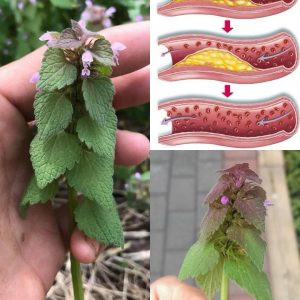
Do you experience tingling in your fingers or a burning feeling in your feet that won’t go away?
These aren’t just minor irritations—they could be signs of nerve damage, a condition that can significantly affect your quality of life. Understanding the root causes and supporting your body with proper nutrients is the first step toward healing.
What Is Peripheral Neuropathy?
Peripheral neuropathy occurs when the peripheral nervous system—the network of nerves outside the brain and spinal cord—is damaged. This disruption leads to communication issues between your brain and body, resulting in symptoms like numbness, burning pain, muscle weakness, and balance problems.
Common causes include diabetes, high blood sugar, excessive alcohol use, certain medications, infections, autoimmune disorders, and vitamin deficiencies—especially in B1, B6, and B12. Addressing these factors is essential to managing and preventing further nerve damage.

Let’s take a closer look at 9 essential nutrients that help repair nerves and ease the symptoms of neuropathy:
1. Alpha-Lipoic Acid (ALA)
ALA is a powerful antioxidant that improves blood flow and helps nourish damaged nerves. Typically taken in doses of 300–600 mg daily, it helps relieve neuropathy symptoms by enhancing circulation and fighting oxidative stress. Rich food sources include red meat (especially liver), spinach, tomatoes, and Brussels sprouts.
2. Acetyl-L-Carnitine (ALC)
ALC supports nerve regeneration and helps with neuropathic pain, particularly in diabetics. It boosts energy production in nerve cells, with studies recommending 500–2000 mg daily. Beef, pork, whole milk, and cod are good dietary sources.
3. Vitamin B1 (Thiamine)
Thiamine protects nerves, especially in those with elevated blood sugar. Its fat-soluble form, benfotiamine, penetrates nerve tissue more effectively and is typically taken in doses between 150–600 mg daily. Good food sources include pork, salmon, sunflower seeds, and peas.
4. Fish Oil (Omega-3 Fatty Acids)
Fish oil, rich in DHA and EPA, helps maintain nerve membranes and reduce inflammation. Studies show doses of 1800–2300 mg daily can support nerve health. Salmon, sardines, tuna, and shellfish are excellent sources.

5. Nutritional Yeast
This food is packed with B vitamins vital for nerve health, including B1, B6, and B12. It also helps regulate blood sugar, aiding in neuropathy management. Sprinkle it over dishes for a nutty, cheesy flavor and nutritional boost.
6. Curcumin (from Turmeric)
Curcumin offers strong anti-inflammatory and pain-relieving effects, helping to ease nerve-related discomfort. Daily doses of 500–2000 mg are common. You can add turmeric to soups, stews, or smoothies for both flavor and healing benefits.
7. Zinc
Zinc is crucial for nerve protection, aiding in neurotransmitter function and repair. While the RDA is 11 mg for men and 8 mg for women, higher doses (25–50 mg) are sometimes used for nerve support under medical supervision. Foods high in zinc include red meat, shellfish, beans, and whole grains.
8. Magnesium
Magnesium calms the nervous system and reduces pain by regulating nerve signals. It’s commonly taken in doses of 200–400 mg daily, with food sources like leafy greens, seeds, nuts, and whole grains.
9. Vitamin B12
The most essential vitamin for nerve repair, B12 is vital for forming the protective myelin sheath around nerves. Deficiency can lead to serious issues like numbness and cognitive decline. While the RDA is 2.4 mcg, therapeutic doses of 0.5–1 mg daily are used in neuropathy treatment. B12 is found in animal products like fish, eggs, dairy, and nutritional yeast.

Lifestyle Changes Matter Too
In addition to these nutrients, healthy lifestyle habits can support nerve health. Avoid processed foods and inflammatory seed oils like canola or vegetable oil. Opt for whole, anti-inflammatory foods—especially omega-3-rich seafood. Regular exercise also improves circulation, reduces inflammation, and promotes nerve regeneration.
By incorporating the right nutrients and habits into your routine, you can take meaningful steps toward managing neuropathy and restoring nerve health.




